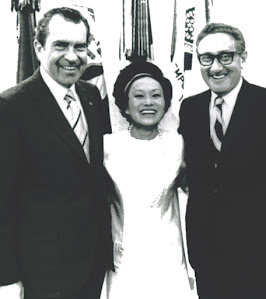11: Going Bananas in Guatemala 1954
As George C. Marshall was being honored for the Marshall Plan designed to spur a peaceful economic recovery in Europe, his friend William Pawley was becoming involved in more hostile activities. In response to Guatemalan President Jacobo Arbenz Guzman calling for agrarian reform that would impact profits of United Fruit and coffee growers, the CIA drew up a contingency plan to overthrow him. CIA Director Allen Dulles wanted “a coordinated effort in the political field.” Dulles felt that “the exact steps which might be politically feasible are matters beyond our competence here” nonetheless “we have a legitimate interest, it seems to me, in seeing that the climate is right for the types of action in which we may be engaged.”
Dulles suggested “sending a two-fisted guy to the general area on a trip of inspection and
to report to the President.” Who did he have in mind? “Bill Pawley or someone of his type might
be considered. I recognize that Pawley is hard to control, but he is fearless and gets things done
even though he may break a little crockery in doing it. I would suggest that he might also spend a
little time in the countries bordering on one of our chief concern.”1
Prior to Dulles envisioning Pawley’s new role, covert “Security Clearance” had been requested by the CIA’s Branch 4 of the Western Hemisphere (WH-IV aka WH/4)—the Caribbean region—for Pawley to “be used in Project DTROBALO as a means of offering employment and resettlement to rehabilitated disposees [sic].” Pawley it was noted “has many contacts and business interests in Latin America which will be valuable in the resettlement phase of the Project. He is not to be used as a consultant. He will be used on a witting basis” and his cover story would be “Governmental” rather than “Commercial” or “Other.”
Read more »
Labels: Arbenz, Armas, bananas, CIA, coffee, Corcoran, Dominican Republic, DTROBALO, Dulles, E. Howard Hunt, Eisenhower, FBI, Guatemala, Holland, PBSUCCESS, Republican, United Fruit, William Pawley, Wisner

